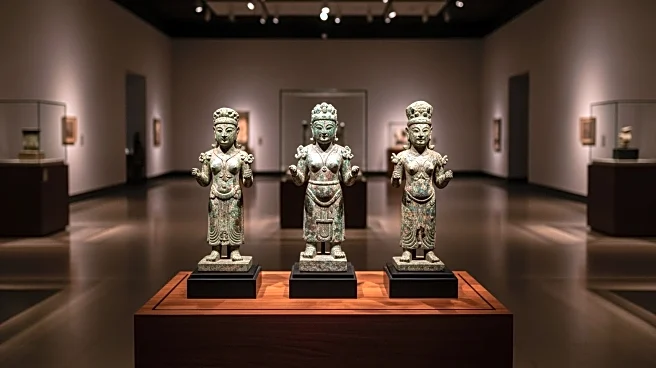What's Happening?
The term 'vibe-coding,' coined by OpenAI cofounder Andrej Karpathy, has been officially recognized as a word by Collins Dictionary, marking it as the 'word of the year' for 2025. Vibe-coding refers to
the use of artificial intelligence prompted by natural language to assist with writing computer code. This concept has gained traction in tech circles, becoming a legitimate skill that commands significant salaries. Companies developing vibe-coding platforms have attracted substantial investment, with Lovable, Replit, and Vercel securing major funding rounds. The recognition of vibe-coding in the dictionary highlights the evolving nature of language influenced by technological advancements.
Why It's Important?
The inclusion of 'vibe-coding' in Collins Dictionary signifies the growing influence of artificial intelligence on everyday language and professional practices. It reflects the integration of AI into coding processes, potentially transforming how software development is approached. This development may lead to increased efficiency and creativity in tech industries, as AI tools become more sophisticated. The recognition also underscores the importance of adapting language to accommodate new technological concepts, which can impact education, communication, and industry standards.
What's Next?
As vibe-coding becomes more mainstream, educational institutions may incorporate it into their curricula, preparing students for careers in tech-driven environments. Companies might continue to invest in AI-driven coding platforms, fostering innovation and competition in the tech sector. The recognition of vibe-coding could lead to further exploration of AI's role in other professional fields, potentially expanding its application beyond coding.
Beyond the Headlines
The emergence of vibe-coding raises ethical considerations regarding the reliance on AI for creative processes. It prompts discussions about the balance between human intuition and machine efficiency in professional settings. The term's recognition may also influence cultural perceptions of AI, shaping how society views the intersection of technology and creativity.








